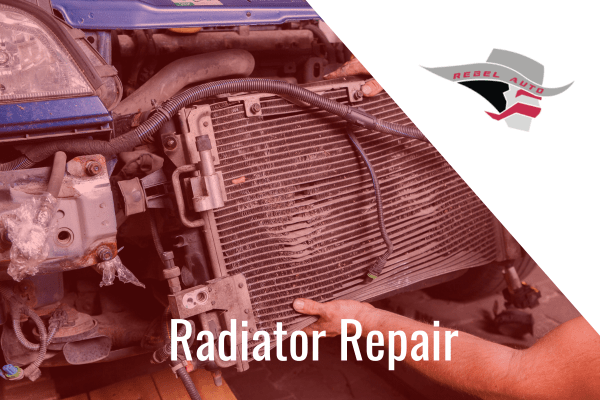How often should radiators be replaced?
Importance of Radiator Repair
The following are some of the significant factors of radiator repair:
Efficient Cooling
Regular radiator repair is vital for maintaining efficient cooling. Over time, debris, dirt, and rust can accumulate, obstructing the radiator's fins and reducing its ability to dissipate heat effectively. This inefficiency leads to overheating, which can cause severe engine damage and compromise vehicle performance.
Prevention of Major Damage
Addressing necessary radiator repair promptly can prevent minor issues from escalating into major problems. Small leaks, for instance, may seem inconsequential, but if left unattended, they can cause coolant loss, leading to overheating and engine breakdown. You protect the entire cooling system and avoid costly engine repairs by conducting timely repairs.
Prolonging Radiator Lifespan
Regular maintenance and timely repair can significantly extend the lifespan of your vehicle's radiator. Fixing minor leaks, replacing damaged hoses, and cleaning the radiator's exterior can prevent corrosion and deterioration, keeping the radiator in top condition for longer.
Determining When to Replace a Radiator
The following are factors that determine how often should radiators be replaced:
Age of the Radiator
Generally, most radiators have a lifespan of around 8 to 15 years, depending on the material and quality. If your vehicle's radiator falls within this age range, it's essential to closely monitor its performance and consider a replacement if it shows signs of deterioration.
Visible Signs of Damage
Inspecting your radiator regularly for visible signs of damage is crucial. Look for leaks, cracks, or signs of corrosion. Any of these issues warrant immediate attention and potential replacement.
Overheating Issues
Consistent overheating problems indicate a malfunctioning radiator. If other cooling system components function correctly, it might be time to replace the radiator.
Conclusion
In conclusion, regular repair of a radiator is paramount to maintaining your vehicle's cooling system and avoiding premature radiator replacements. Understanding the signs of a deteriorating radiator and the general lifespan of radiators will help you determine how often should radiators be replaced. By taking care of your radiator, you can ensure your vehicle's reliability and performance; eliminating any concerns about how often radiators should be replaced.
Wondering how often should radiators be replaced? Contact our ASE Certified technicians at Rebel Automotive for more information about radiator repair services and to schedule an appointment. Our auto shop proudly serves residents in the community of Henderson, NV, Las Vegas, NV, and North Las Vegas, NV.
Wondering how often should radiators be replaced? It’s important to take care of a needed radiator repair at Rebel Automotive before your road trip.
Importance of Radiator Repair
The following are some of the significant factors of radiator repair:
Efficient Cooling
Regular radiator repair is vital for maintaining efficient cooling. Over time, debris, dirt, and rust can accumulate, obstructing the radiator's fins and reducing its ability to dissipate heat effectively. This inefficiency leads to overheating, which can cause severe engine damage and compromise vehicle performance.
Prevention of Major Damage
Addressing necessary radiator repair promptly can prevent minor issues from escalating into major problems. Small leaks, for instance, may seem inconsequential, but if left unattended, they can cause coolant loss, leading to overheating and engine breakdown. You protect the entire cooling system and avoid costly engine repairs by conducting timely repairs.
Prolonging Radiator Lifespan
Regular maintenance and timely repair can significantly extend the lifespan of your vehicle's radiator. Fixing minor leaks, replacing damaged hoses, and cleaning the radiator's exterior can prevent corrosion and deterioration, keeping the radiator in top condition for longer.
Determining When to Replace a Radiator
The following are factors that determine how often should radiators be replaced:
Age of the Radiator
Generally, most radiators have a lifespan of around 8 to 15 years, depending on the material and quality. If your vehicle's radiator falls within this age range, it's essential to closely monitor its performance and consider a replacement if it shows signs of deterioration.
Visible Signs of Damage
Inspecting your radiator regularly for visible signs of damage is crucial. Look for leaks, cracks, or signs of corrosion. Any of these issues warrant immediate attention and potential replacement.
Overheating Issues
Consistent overheating problems indicate a malfunctioning radiator. If other cooling system components function correctly, it might be time to replace the radiator.
Conclusion
In conclusion, regular repair of a radiator is paramount to maintaining your vehicle's cooling system and avoiding premature radiator replacements. Understanding the signs of a deteriorating radiator and the general lifespan of radiators will help you determine how often should radiators be replaced. By taking care of your radiator, you can ensure your vehicle's reliability and performance; eliminating any concerns about how often radiators should be replaced.
Wondering how often should radiators be replaced? Contact our ASE Certified technicians at Rebel Automotive for more information about radiator repair services and to schedule an appointment. Our auto shop proudly serves residents in the community of Henderson, NV, Las Vegas, NV, and North Las Vegas, NV.


